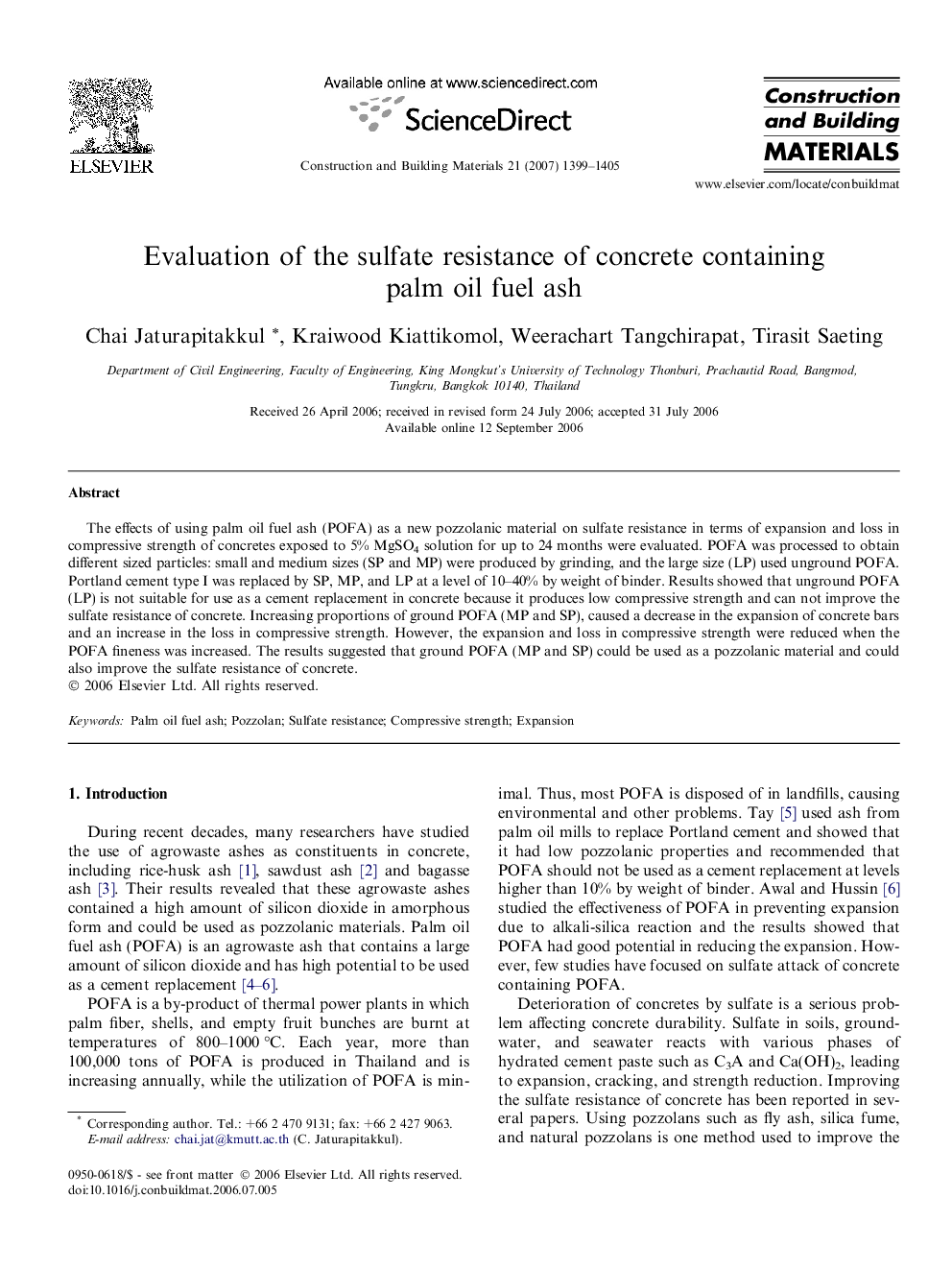| Article ID | Journal | Published Year | Pages | File Type |
|---|---|---|---|---|
| 261394 | Construction and Building Materials | 2007 | 7 Pages |
The effects of using palm oil fuel ash (POFA) as a new pozzolanic material on sulfate resistance in terms of expansion and loss in compressive strength of concretes exposed to 5% MgSO4 solution for up to 24 months were evaluated. POFA was processed to obtain different sized particles: small and medium sizes (SP and MP) were produced by grinding, and the large size (LP) used unground POFA. Portland cement type I was replaced by SP, MP, and LP at a level of 10–40% by weight of binder. Results showed that unground POFA (LP) is not suitable for use as a cement replacement in concrete because it produces low compressive strength and can not improve the sulfate resistance of concrete. Increasing proportions of ground POFA (MP and SP), caused a decrease in the expansion of concrete bars and an increase in the loss in compressive strength. However, the expansion and loss in compressive strength were reduced when the POFA fineness was increased. The results suggested that ground POFA (MP and SP) could be used as a pozzolanic material and could also improve the sulfate resistance of concrete.
